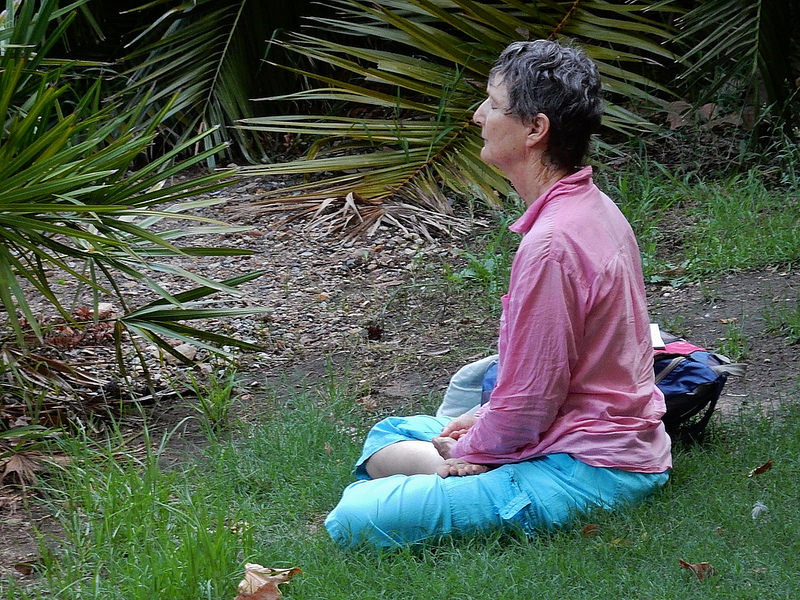When women were surveyed about stress related to work these were the results: Women were more likely than men to report work stress — 28 per cent said they had high-strain positions and 17 per cent said they had low-strain jobs, while 20 per cent of men reported high-strain jobs and 24 per cent said they had low-strain positions. (CBC News, 2007). One-third of women surveyed said they were a bit or extremely stressed most days at work — versus 29 per cent of men (CBC News, 2007).
I am here to suggest another way of looking at self care for you super powered women. Instead of seeing it as ‘it’s all about me’ time, think of it as a necessary task that deserves time and space on your to-do list in order for you to better care for your family. Take a moment and think about that for a second. I know, it seems strange to think of ‘me time’ or self care time as caring for your loved ones, but it’s true. If you are completely exhausted, no energy, nothing left to give of yourself, what kind of ‘care’ could you possibly be providing for your family?
Then I ask them what’s the quality of that interaction? Do you have the time and space to be patient with your kids when they are attempting to drive you insane? What’s your relationship with your husband/partner like? If this at all describes you, you know what the answers are already. You lose your temper easily, when you don’t mean to. You love your kids, but you are at the point where you do what you do for them begrudgingly. What relationship with my husband? I’m lucky if I see him, forget spending anything that resembles quality time with him.
Have more questions about what Naturopathic Medicine can do for you and your family? Take advantage of our 15 minute consults to find out more today. References: CBC News: Technology & Science. (2007). Work stress leads to increased absenteeism, disability: StatsCan. Retreived May 27, 2017: http://www.cbc.ca/news/technology/work-stress-leads-to-increased-absenteeism-disability-statscan-1.636782
0 Comments
I completely understand how important, small, manageable changes are to creating success! I see it all the time with my patients and the research also supports this approach. Therefore, I will only mention 3 small things you can do to make a big impact on your eating habits and your health.
There you have it. Some very simple changes you can make to how you eat to improve the quality of your diet. Now I am not saying you have to even do this all at once, pick one and start with that. Then you can look at adding the others over time. If you never start, you'll never get the benefits, but if you try to change everything at once you'll feel overwhelmed and eventually you will drop everything.
Have questions about these tips or how to have better eating habits? Talk to me about it. I love helping people make gradual, positive changes that benefit their health and well being. Note: Talk to your Naturopathic Doctor today about getting assessed and treated if needed, and as always talk to your health care provider before beginning any new medication or supplement. This information is not meant to replace the advice/guidance of a medical professional, nor should it be acted upon by individuals unsupervised by the appropriate healthcare provider.
Why do we need to worry about sugar? Sugar in the blood is not a bad thing on its own. In fact, without this important fuel we wouldn’t last very long. However, like most things, in the right amount we stay healthy, but when we have too little sugar or too much, that’s when problems arise. Our main method of procuring this fuel is eating and drinking. Anything we consume, our body breaks down into it’s most basic building blocks, glucose, which is sugar, being one of them. Once broken down, the body shuttles the glucose to where it’s needed. If you’re playing a game of tag, then you’re going to need glucose for your muscles. If you’re studying for a big test, then you need glucose for your brain. The blood is simply the highway system in your body that transports the glucose (along with many other things) throughout the body until it reaches it’s final destination.
What can we do? Eating Well We know that balance is important, but what are some easy and crucial things we can do to improve our blood sugar balance. One, you may have guessed, is being mindful of what you eat! Proper nutrition is really a cornerstone of good health. Start with eating a diet focused on good whole foods, which includes 5-10 servings of fruit and vegetables a day, whole grains (complex carbs), good proteins and healthy fats. Then avoiding excess sugar, like soft drinks. Did you know that there can be as many as 6-10 tbsp of sugar in 1 can of pop? Another helpful trick is to have either protein or fat with each meal. Not only do they help you feel more full for longer, they also modulate the rush of sugar coming into the body. If we’re looking at a curve of blood sugar levels, this is what happens if we have sugar by itself, a big spike and then decline about an hour to a few hours later. This is why people who have a chocolate bar for their afternoon snack feel like they have lots of energy and focus for the first hour or so after, but end up feeling more tired later on when their blood sugar plummets. If you eat fat or protein with your other foods, it helps to temper this spike in blood sugar so you don’t have a huge increase and subsequent decrease of blood sugar and corresponding energy levels.
Blood sugar levels have a story to tell about our health, and every choice you make with your diet and lifestyle habits writes that story. Make sure you make the right choices for you: eat right, exercise and modify your stress. Your family and your future self will thank you for taking steps to ensure that your blood sugar story is writing about a long and healthy future.
Have questions about how you and your family can reduce your sugar intake? Ask me about it by emailing me through the 'contact me' section or give me a shout at the office. I'm here to help you achieve your best possible health. Note: Talk to your Naturopathic Doctor today about getting assessed and treated if needed, and as always talk to your health care provider before beginning any new medication or supplement. This information is not meant to replace the advice/guidance of a medical professional, nor should it be acted upon by individuals unsupervised by the appropriate healthcare provider. References: Silverthorn, D.U. 2010. Human Physiology An Integrated Approach. Fifth Edition. Pearson International Edition. Stats Canada. 2016. Obesity in Canada: A Whole-of-Society Approach to a Healthier Canada: http://www.parl.gc.ca/content/sen/committee/421/SOCI/Reports/2016-02-25_Revised_report_Obesity_in_Canada_e.pdf WebMD. Fit Jr. (2016). Just a Spoonful of Sugar Adds Up: http://fit.webmd.com/jr/food/pdf/pdf-sugar-adds-up
What Can We Do About It? Keeping this in mind, what can we do to change this for the better? We can’t eliminate stress altogether, a little bit of stress is a good thing. However, the problem starts when this crosses over into distress, when stress is no longer tolerable or manageable. This is when we need to put strategies in place that help to minimize the experience of negative stress.
Note: Talk to your Naturopathic Doctor today about getting assessed and treated if needed, and as always talk to your health care provider before beginning any new medication or supplement. This information is not meant to replace the advice/guidance of a medical professional, nor should it be acted upon by individuals unsupervised by the appropriate healthcare provider.
 Most of us are feeling at least a little tired of all the snow, and are thinking more and more often about spring and sunshine. However, for some of us the change of season is much more noticeable because of the huge difference it makes in our mood. It’s normal to have a few days of low mood, but if it persists for most of the winter months and you aren’t motivated to do anything you enjoy then it may be something a little bit more. Seasonal affective disorder (also called SAD) is a type of depression that occurs at the same time every year. If you're like most people with seasonal affective disorder, your symptoms start in the fall and may continue into the winter months, sapping your energy and making you feel moody. Less often, seasonal affective disorder causes depression in the spring or early summer. What are the signs of SAD?
If you think you may have SAD it is important that you discuss how you are feeling with your health care provider. SAD is considered a type of depression, which can worsen and potentially lead to thoughts of suicide. If you are having thoughts of harming yourself or others it is of the utmost importance to seek medical help immediately!
What Can We Do About SAD? Light Therapy (phototherapy) has been shown to be a very effective treatment for reducing feelings of SAD. The specialized light box mimics natural light, which seems to have an effect on brain chemistry related to mood. Most people start to respond after 2 to 4 days and causes few side effects. Conventional Treatment: If symptoms are more severe then a combination of psychotherapy and medication (eg. Zoloft or Paxil), may be employed by your doctor. Generally a medication with the fewest side effects will be chosen, and your doctor may suggest beginning the antidepressant prior to the start of your symptoms each year. Naturopathic Treatment St. John’s Wort: has been used to treat mild to moderate depression. Some studies have found St. John’s Wort to be comparable to tricyclic and SSRI (fluxotine) with fewer side effects. SAMe: synthetic form of the same substance that is made naturally in the body from a reaction between methionine (an essential amino acid) and ATP, has been shown to alleviate depression as well as the pain of osteoarthritis. Melatonin. This natural hormone helps regulate mood. A change in the season may change the level of melatonin in your body. Omega-3 fatty acids. Omega-3 fatty acid supplements may help relieve depression symptoms and have other health benefits. Sources of omega-3s include fish such as salmon, mackerel and herring. Omega-3s are also found in certain nuts and grains and in other vegetarian sources, but it isn't clear whether they have the same effect as fish oil. Lifestyle Let the sun shine in: Open the blinds, trim a few branches, add a skylight if need be. Do whatever you can to allow more natural light into the home and office. Go outside: Try and get outside during the day when the sun is shining. Take a nice walk, sit on a bench, just try and get into the natural light more often. Exercise: Regular exercise has been shown through many studies to improve mood and relieve stress and anxiety. Mind-Body Therapy All of the following have been linked to decreased feelings of depression to varying degrees: - Acupuncture - Yoga - Meditation - Guided Imagery - Massage There is no one set formula for preventing SAD, but through proper treatment and working with your health care provider you can learn to manage this condition well. Talk to your Naturopathic Doctor today about getting assessed and treated if needed, and as always talk to your health care provider before beginning any new medication or supplement. References: Godfrey A. & Saunders P.R. (2010) Principles & Practices of Naturopathic Botanical Medicine: Volume I: Botanical Monographs. Central Nervous System, pg. 161-163. CCNM Press. Mayo Clinic. Diseases and Conditions: Seasonal Affective Disorder (SAD). http://www.mayoclinic.org/diseases-conditions/seasonal-affective-disorder/basics/definition/con-20021047 Murray M. & Pizzorno, J.. (1998) Encyclopedia of Natural Medicine (2nd Ed.). Depression, pg 377-400. Three Rivers Press. |
Sarah Connors
I am a Naturopathic Doctor and Doula providing care in the Kitchener-Waterloo area. I have a passion for helping people with their health issues and improving the birth experience for Moms, and their babies. I also have a life long love affair with soccer, curling, and the alto saxophone. Archives
November 2020
Categories
All
|
Photos from Rural Royalty, manu flickr2010, Ryan Dickey, wocintechchat, huskyte77, paulswansen, Black Room Photography, harum.koh, Emery Co Photo, JeepersMedia, BrownGuacamole, wellnesswildflower, JeepersMedia, vastateparksstaff, colindunn, seelensturm, /\ \/\/ /\, 50mm.za, The Simpsons (Lee, Shirley, Luke and Rachel), AGRONAUTI, aivas14, Jonathan Rolande, winnifredxoxo, juhansonin, osseous, nan palmero, Theo Crazzolara, brianfagan, TP studio, wuestenigel, torbakhopper, anka.albrecht, Michael Stern, [-ChristiaN-], franchiseopportunitiesphotos, terren in Virginia, nateOne, barnimages.com, Dun.can, wuestenigel, @lattefarsan, amandabhslater, aphrodite-in-nyc, nutritionaldoublethink, Anne Worner, donnierayjones, mikecogh, angeloangelo, Rob.Bertholf, getaiwan, Lida Rose, matsuyuki, SurFeRGiRL30, marcoverch, amsfrank, mdaltry, nutrition education, Mike Prince, Edsel L, Neighborhood Nini, philipp.alexander.ernst, Mediocre2010, homethods, quinn.anya, Gamma Man, katerha, Eric Kilby, National Institutes of Health (NIH), rcmd_cfdfw_5_2, curtis palmer, Ray in Manila, frankieleon, Airsoftpal.com, byzantiumbooks, cchana, Brian Legate, Matt Lavin, BradHinton, monpetitchouphotography, wuestenigel, alexisjordanlewis, ByEPhotos, erix!, RLHyde, return the sun, quinn.anya, mliu92, frankieleon, loudista, Lyn Lomasi, upslon, derrickbrutel, cchana, National Institutes of Health (NIH), watts_photos, marcoverch, derrickbrutel, francesbean, weegeebored, Airsoftpal.com, Etwood, wu_135, shixart1985, Ingrid Taylar, VeritasFotografie, BioDivLibrary, emmanuelmorales1, Thanks for 1.5 Million Views!!, Will Merydith, reader of the pack, RoxyHobbs, Khanelle Prod' Medias, storyvillegirl, agromonitor, Arenamontanus, six:eleven, cote, SweetOnVeg, nenoirenediaz, lucianvenutian, markhillary, anotherlunch.com, inkknife_2000, archibald jude, rawtrigger, Imaginary Museum Projects: News Tableaus, Pavel P., Courtney Emery, Thien Gretchen, physiognomist, bark, Michigan Municipal League (MML), alberth2, Merelymel13, neofob, Care_SMC, Parker Knight, B*2

























 RSS Feed
RSS Feed
